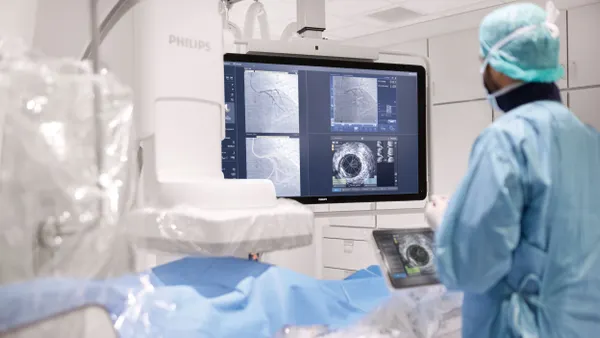Dive Brief:
- FDA has approved Channel Medsystems' premarket application for a cryoablation device to treat heavy menstrual bleeding in premenopausal women.
- The Cerene device is indicated for endometrial cryoablation in women with excessive menstrual bleeding due to benign causes and for whom child bearing is complete.
- The device uses a freezing agent that is delivered via a thin probe and released within a flexible balloon to destroy the endometrial lining of the uterine cavity. The treatment does not require sedation or general anesthesia, because cold provides natural pain relief, and can be performed in a gynecologist's office.
Dive Insight:
Several treatments for heavy menstrual bleeding already exist, ranging from hormone therapy to hysterectomy. Emeryville, California-based Channel Medsystems is positioning the Cerene procedure, which received CE mark approval in Europe in 2017, as a comfortable, office-based treatment with little to no downtime after the procedure.
Cryoablation techniques, involving extreme cold to destroy tissue, are used to treat a number of medical conditions, including to restore normal heart rhythm by disabling targeted heart cells in patients with atrial fibrillation. Cryoablation is also used to ablate malignant and benign tumors in the liver, breast, prostate and others tissues and organs.
For women with profuse uterine bleeding, dilation and curettage has been the traditional treatment for patients who cannot tolerate drug therapy. It involves dilation of the cervix and scraping of the endometrial lining of the uterine cavity with an instrument or vacuum aspiration. The procedure allows a woman to maintain her fertility.
FDA said it approved seven endometrial ablation technologies prior to the Cerene treatment, all intended for women who do not want to remain fertile. They are: Gynecare's ThermaChoice Balloon that uses thermal energy from heated sterile fluid; Boston Scientific's HydroTherm system that uses heated saline; Cooper Surgical's Her Option cryoablation system; Hologic's NovaSure device that uses bipolar radiofrequency (RF) energy to create heat; Microsulis Medical's device that uses microwave energy; the Minerva Surgical bi-polar RF energy system; and the Aegea Medical system that uses heated water vapor.
The Cerene procedure also is intended for women who do not want to preserve fertility. In the Clarity clinical trial of 242 women to evaluate the safety and effectiveness of the device, 76.9% of patients had their bleeding reduced to a normal level or less, which met the study goal, and 10% had no menstrual bleeding one year after treatment. Painful periods decreased for 84% of women following the procedure, and the overall patient satisfaction rate was 90%.
Heavy menstrual bleeding is a common problem that affects one in five women, with symptoms typically starting between the ages of 30 and 40. The condition can cause loss of energy and may make it difficult to work, exercise and socialize.












